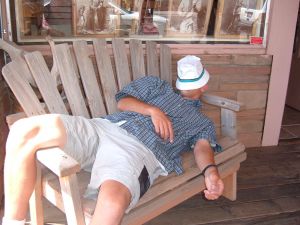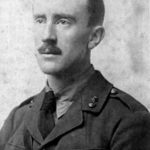Characters Matter, And Their Character Matters
In a Writer’s Digest interview some years ago about how to write fantasy, author Steven Harper Piziks demonstrated that characters matter. He named five books he would recommend to fantasy writers and explained why he felt they were important. One thing jumped out at me from his list—he repeatedly mentioned “character.”
First he referred to “an entirely empathetic, hugely likeable main character.” Later he identified one of the books as “The best character novel I’ve ever read. It made me laugh and cry and ache and want to go into the book to live with these people” (emphasis mine).
While I might or might not agree with Piziks about the characters in the particular books he mentioned, I think the point is clear: an engaging character is one readers are willing to spend time with.
 However, one of the things I’ve noticed lately about a lot of the Christian speculative fiction I read, is that the main character isn’t all that likable. In an effort to show the reality of sin in a person’s life, a good number of authors are depicting flawed characters who aren’t very nice. Some are whiny, others are too caught up with their own interests to care about other people. Some are lazy or disinterested or foolish.
However, one of the things I’ve noticed lately about a lot of the Christian speculative fiction I read, is that the main character isn’t all that likable. In an effort to show the reality of sin in a person’s life, a good number of authors are depicting flawed characters who aren’t very nice. Some are whiny, others are too caught up with their own interests to care about other people. Some are lazy or disinterested or foolish.
In other words, it’s hard to imagine readers saying, I want to live in that world with those people.
I’m wondering if we might be looking at a theological problem. Christians understand that sin mars human beings: “All have sinned and fall short of the glory of God” (Rom. 3:23). What we tend to forget is that human beings are nonetheless the image bearers of our Creator: “Then God said, ‘Let Us make man in Our Image, according to Our likeness’ ” (Gen. 1:26a).
Consequently, what we see in Christian novel after Christian novel is a flawed character in need of a Savior. The impression this gives is that people without Christ aren’t particularly likable since their flawed character means they won’t do heroic deeds or stand up for right.
As I see it, we are turning our fiction characters into a “their side and our side” duality, and the goal is to win over as many as possible to our side. Perhaps this is the view a number of people have of the real world as well.
The problem with this approach is that Scripture is clear when it teaches the believer who our enemy is: “your adversary, the devil, prowls around like a roaring lion, seeking someone to devour” (1 Peter 5:8b).
Our approach, then, ought to be that of rescuers, not that of conquerors, when we approach people without Christ. We are to love our neighbors as ourselves—Christian or not. When our neighbors are being stalked by a lion, we ought to be heading up the rescue team.
 I’m wondering if the the characters in our novels ought not reflect these same truths. The character without Christ doesn’t have to come across as a hopeless case–the guy who has ruined his marriage, abandoned his kids, who lives one step this side of the gutter. The Christian character, on the other hand, doesn’t need to have all of life figured out, but shouldn’t he be on a rescue mission more than engaged in hand-to-hand combat against vile sinners?
I’m wondering if the the characters in our novels ought not reflect these same truths. The character without Christ doesn’t have to come across as a hopeless case–the guy who has ruined his marriage, abandoned his kids, who lives one step this side of the gutter. The Christian character, on the other hand, doesn’t need to have all of life figured out, but shouldn’t he be on a rescue mission more than engaged in hand-to-hand combat against vile sinners?
So I’m wondering, what Christian speculative novels have you read in which a person on the wrong side of faith is portrayed in a positive light? Are too many of us Christian writers stereotyping non-Christians?
This post is an edited version of one that first appeared here in June 2013.










































